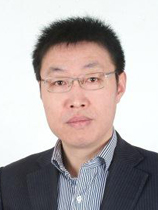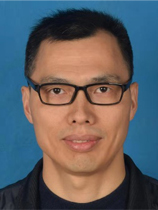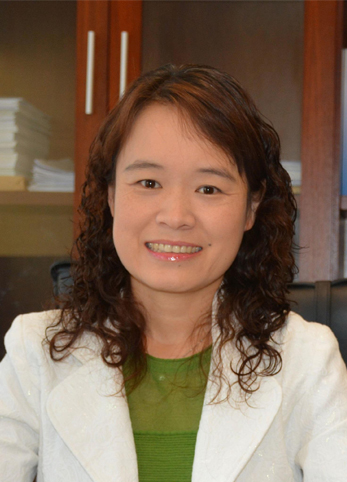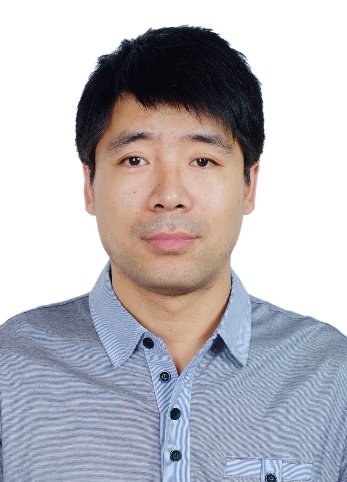Speech time: August 16 |
En-Hong Chen (University of Science and Technology of China) En-Hong Chen is the executive director of big data college of university of science and technology of China, vice President of Computer College, deputy director of CCF big data expert committee, member of computer education committee of ministry of education, director of Anhui key laboratory of big data analysis and application, and chairman of Anhui computer society. He is the winner of the national outstanding youth fund, the leader of the innovation team in key fields of the ministry of science and technology, and the leading talent of the "ten thousand people plan" of the organization department of the CPC central committee. IEEE Transactions on Knowledge and Data Engineering, IEEE Transactions on System Man and Cybernetics: System, ACM Transactions on Intelligent System, Knowledge and Information System. He has won the best applied paper award of KDD 2008, the best student paper award of KDD 2018, the best research paper award of ICDM 2012, and the first prize of nature award of the ministry of education. Cognitive modeling and its application in wisdom education In many fields such as games, sports and education, how to automatically model and track participants (such as game players, athletes, students) to master the level of specific skills is a basic research problem, for intelligent matching and recommendation, automatic team, adaptive learning and other intelligent services have important application value. However, most existing theory and cognitive diagnosis model based on psychology and statistics, although the modeling process and diagnosis results have good interpretability, but used by function fitting ability is limited, and has the strong constraints of the data format (for example, can't deal with text, images and other data), limiting the scope of its application and promotion. Taking education as an example, this report will introduce the machine learning model for cognitive diagnosis and knowledge tracking of students from large-scale heterogeneous learning data, as well as the adaptive learning path recommendation method based on learner cognitive structure. |
Speech time: August 16 |
Tianrui Li (Southwest Jiaotong University) Tianrui Li received his B.S. degree, M.S. degree and Ph.D. degree from the Southwest Jiaotong University, China in 1992, 1995 and 2002 respectively. He was a Post-Doctoral Researcher at Belgian Nuclear Research Centre (SCK ? CEN), Belgium from 2005-2006, a visiting professor at Hasselt University, Belgium in 2008, the University of Technology, Sydney, Australia in 2009 and the University of Regina, Canada in 2014. And, he is presently a Professor and the Director of the Key Lab of Cloud Computing and Intelligent Technique of Sichuan Province, Southwest Jiaotong University, China. Since 2000, he has co-edited 6 books, 10 special issues of international journals, 15 proceedings, received 6 Chinese invention patents and published over 360 research papers (e.g., AI, IEEE TKDE, IEEE TEC, IEEE TIP, IEEE TFS, IEEE TIFS, IEEE ASLP, IEEE TIE, IEEE TC, IEEE TVT) in refereed journals and conferences (e.g., KDD, ACL, IJCAI, WWW, UbiComp, ICDM). 3 papers were ESI Hot Papers and 12 papers was ESI Highly Cited Papers. His Google H-index is 40. He serves as the area editor of International Journal of Computational Intelligence Systems (SCI), editor of Knowledge-based Systems (SCI) and Information Fusion (SCI), etc. He is an IRSS fellow and Steering Committee Chair (2019-2020), a distinguished member of CCF, a senior member of ACM, IEEE and CAAI, ACM SIGKDD member, Chair of IEEE CIS Chengdu Chapter (2013-2018), Treasurer of ACM SIGKDD China Chapter and CCF YOCSEF Chengdu Chair (2013-2014). Over fifty graduate students (including 8 Post-Docs, 15 Doctors) have been trained. Their employment units include Microsoft Research Asia, Sichuan University, Baidu, Alibaba, Tencent and Huawei. They have received 2 "Si Shi Yang Hua" Medals, Best Papers/Dissertation Awards 15 times, Champion of Sina Weibo Interaction-prediction at Tianchi Big Data Competition (Bonus 200,000 RMB), Second Place of Social Influence Analysis Contest of IJCAI-2016 Competitions and Second Place of Weather forecast Contest of AI Challenger 2018. Data-Driven Intelligence: Challenges and our Solutions Data-Driven Intelligence has become a hot research topic in the area of information science. This talk firstly outlines the challenges on Data-Driven Intelligence. Then our recent solutions for Data-Driven Intelligence are provided, which cover the following aspects: 1) A hierarchical entropy-based approach is demonstrated to evaluate the effectiveness of data collection, the first step of Data-Driven Intelligence; 2) A multi-view-based method is illustrated for filling missing data, the preprocessing step for Data-Driven Intelligence; 3) A unified framework is outlined for Parallel Large-scale Feature Selection to manage Big Data with high dimension; 4) A MapReduce-based parallel method together with three parallel strategies are presented to compute rough set approximations for classification, which is a fundamental part in rough set-based data analysis, similar to frequent pattern mining in association rules; 5) Incremental learning-based approaches are shown for updating approximations and knowledge in dynamic data environments, e.g., the variation of objects, attributes or attribute values, which improve the computational efficiency by using previously acquired learning results to facilitate knowledge maintenance without re-implementing the original data mining algorithm; 6) Deep-learning-based models to fuse multiple different sources of data are developed; 7) Several typical applications on natural language processing, high speed train and urban computing, etc. are shown. |
Speech time: August 16 |
FANG Jiaoli£¨Kunming University of Science and Technology£© Fang Jiaoli, female, associate professor, a famous teacher of Kunming University of Science and Technology, head of the national competitive online open course, secretary general of Yunnan Work Committee of CMOOC Alliance of the Chinese Universities, "Star of Wisdom Teaching" of the Center for Online Education Research of China' Ministry of Education and an excellent teacher of wisdom teaching of the Rain Classroom. Presided over and mainly participated in more than 30 teaching and research projects of the Science and Technology Department and the Department of Higher Education of the Ministry of Education as well as the national basic computer education at the provincial, department and school levels. Obtained 7 invention patents, 6 utility model patents and 22 software copyrights. Editor-in-chief, deputy editor-in-chief or editor of 15 teaching materials, and published 35 papers. Won the first prize of 1st Teaching Competition of the University Teachers in Yunnan Province, the excellent case award of Flipped Teaching of CMOOC Alliance, the titile of Prominent Teacher of Computer Teaching in Yunnan Province, the grand prize of the 1st Multimedia Teaching Competition of Kunming University of Science and Technology, the title of 1st Top 10 Pacesetters in Teacher's Ethics, the title of 1st Top 10 Outstanding Young Teachers in "Dedication and Being a Model for Others", the Wu Daguan Advanced Teacher Award, the Model Teacher Award of Red Cloud Gardener, the Grand Prize and the first prize in Teaching Achievements and so on. Strategies for the Construction of "Golden Course" Education and teaching is the basic function of colleges and universities. The main position of education and teaching is classroom teaching. Classroom teaching directly affects the quality of personnel training. The growth of students calls for ¡°Golden Course¡±. The spirit of relevant documents of the Ministry of Education of the People's Republic of China clearly proposes to eliminate ¡°Water Course¡± and build "Golden Course". This report puts forward that "the construction of the ¡®Golden Course¡¯ can be done by everyone", and the computer course is taken as an example to introduce the construction path and method of the five categories of "Golden Course ". |
Speech time: August 17 |
Xinhong Hei£¨Xi¡¯an University of Technology£© Xinhong Hei received his B.S. degree and M.S. degree in computer science and technology from Xi¡¯an University of Technology, Xi¡¯an, China, in 1998 and 2003, respectively, and his Ph.D. degree from Nihon University, Tokyo, Japan, in 2008. He is a distinguished member of CCF, member of ACM and IEEE, and is currently a professor and dean with the Faculty of Computer Science and Engineering, Xi¡¯an University of Technology, Xi¡¯an, China. His current research interests include intelligent systems, and safety-critical system, and computer education. Toward Predict the Student Grade with Decision Tree Algorithm With the rapid development of online open courses, it has become a hot issue in educational research to use learning analysis technology to explore online learning characteristics and provide support for the improvement of teaching methods and academic warning. A grade prediction model based on decision tree algorithm according to students' previous learning behavior is designed in this talk. Firstly, ID3, C4.5 and CART classification algorithm are used to construct the initial grade prediction model for the pre-processed learning behavior data set. Secondly, in order to prevent over-fitting, pruning set is used to conduct pruning on the initial grade prediction model. Finally, the performance of three grade prediction models is evaluated by test data set. Experimental results indicate that the grade prediction model constructed by ID3 algorithm has better performance than that constructed by other two algorithms. |
 University of Science and Technology of China
University of Science and Technology of China Southwest Jiaotong University
Southwest Jiaotong University Kunming University of Science and Technology
Kunming University of Science and Technology Xi¡¯an University of Technology
Xi¡¯an University of Technology